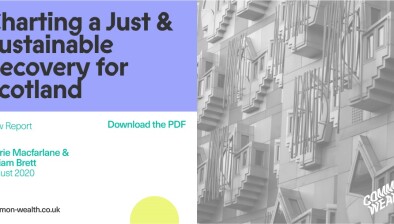Councillors want Badenoch and Strathspey designated as a Short-Term Let Control Area

The Highland Council has agreed to apply to Scottish Ministers to designate Ward 20 (Badenoch and Strathspey) as a Short-Term Let Control Area.
Following Ward 20 members concerns over the number of dwelling houses within Badenoch and Strathspey being lost to secondary letting, it was agreed (at the Highland Council meeting on 9 September 2021) that the council would pursue the consideration of establishing a Short-term Let Control Area across Badenoch and Strathspey.
Their concerns were fuelled by the increasing demand for local housing in the area and a lack of available housing.
At yesterday’s meeting, members further agreed that following a subsequent decision by Scottish Ministers that another report would be brought back before the council’s Economy and Infrastructure Committee.
That report will confirm the outcome and outlining of the next steps – which would include the start date of the Control Area.
A member’s workshop was also agreed to be held to discuss the differing planning policy options for considering and determining planning applications for secondary letting within the STL Control Area.
Over the summer officers will prepare and submit the required information to Scottish Ministers at the earliest opportunity and progress planning policy work.
The decision was based on all the available evidence and feedback from the recent consultation which took place.
The formal consultation ran for a 6-week period, from 31 January 2022 until 7 March 2022, via the council’s online engagement software. The online consultation was also supported by a public information video outlining the issues around secondary letting and both the positive and negative implications establishing a Short-term Let Control Area could bring.
Officers also made direct contact via email, with all community councils within Ward 20, the main website organisations offering this type of accommodation and the main trade organisations. The engagement process was also aided by the Cairngorm National Park Authority who contacted local business partnerships.
During the consultation period, a total of 332 responses were received. Out of these 52% were from private individuals, 44% from Short-term let operators/management companies and the remainder were local businesses/business organisations/the National Park and from community councils.
There was a near 50/50 split between local residents and STL Operators/management companies who responded to the consultation. And the results also produced a fairly equal split also, at 45% each way as to whether the council should establish a Short Term Let Control Area for Badenoch and Strathspey. The remaining 9% were unsure at the time of completing the survey.
The majority in favour of the STL Control Area noted the likely outcome would be homes being returned to local full-time occupation, either for sale or long-term rental and at a price/availability suited to the local market.
Highland Council convener and Badenoch and Strathspey Area Committee chair, Councillor Bill Lobban, said: “The creation of an STL Control Area will safeguard the character of the area, whilst creating more resilient local communities, where younger families could be based and employed locally.
“Given the lack of available housing in Badenoch and Strathspey the Council has a duty to ensure the best use of all the housing stock, and it is considered appropriate to consider all housing control mechanisms, including the introduction of a Short-term Let Control Area.”
The legislation surrounding the Short-term Let Control Area requirements is specific and will require all properties used for secondary letting to either obtain planning approval or if they have been used for a period of greater than 10 years as an STL to obtain a ‘Certificate of Lawfulness’.
At their summer workshop, members will discuss and develop a policy which would support existing properties utilised for secondary letting, which, whilst not removing the need to obtain planning approval, could give existing operators some certainty in terms of the planning application outcome.







